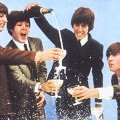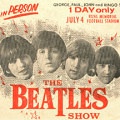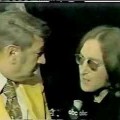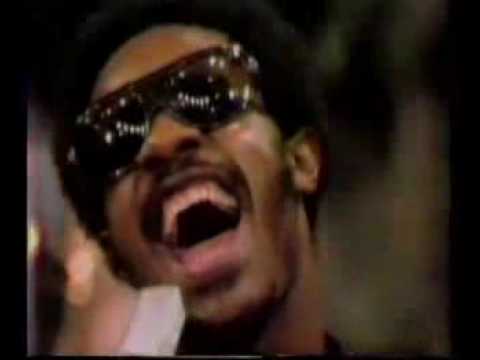- From Faith Current: “The Sacred Ordinary: St. Peter’s Church Hall” - May 1, 2023
- A brief (?) hiatus - April 22, 2023
- Something Happened - March 6, 2023
Since it’s so damn hot in my apartment — much too hot to work out the plot of my historical spy thriller — I cast around a bit in the Beatles-strewn attic of my mind for a suitable post. I suddenly got a hankering to find and watch a Beatles-related film I once saw as a hot child on a hot night such as this. Once a year — invariably during a pledge drive — St. Louis’ PBS station KCET would host a night of Beatles. One year in the late 70s, sandwiched between “A Hard Day’s Night” and a scratchy copy of “The Beatles at Shea Stadium,” was a short film called “Condensed Cream of Beatles.”
Made by documentarian and director Charles Braverman, “Condensed Cream of Beatles” was a rapid-fire pop-art gallop through the history of the group. I’ve never forgotten it. If you haven’t seen it, take a look.
The footage is great, but it’s the linking stuff that really shows what’s going on. Take special note right around 5:16; and then later during “We Can Work It Out.” This aspect of “Condensed Cream of Beatles” is a beautiful example of the rich, history-drunk graphic idiom of the time, very beloved by me. That collagey, magpie attitude has been so important to the way I look at the world — and it’s certainly related to why this blog persists. I don’t know what it’s called; it’s not nostalgia, exactly. It’s more… history remixed?
Here’s half of it, for your viewing pleasure — the rest isn’t available on the internet.
Now days this type of thing feels old-fashioned, hippyish. It certainly doesn’t feel like contemporary art. It’s not ironic and conceptual; the stills may seem silly — promo shots — but they aren’t self-congratulatory air-quotes translating to “look at how much stupider people were back then.” Back in 1979, it didn’t feel anything like that: it felt like something wonderful, just out of reach. Lennon was still alive; the breakup was only nine years old.
Braverman’s “Condensed Cream of Beatles” isn’t an Instagram filter meant to evoke cheesiness. That attitude came later, after the style overripened into nostalgia, and the nostalgia spurred a backlash. And now, spurred by marketing and demographics, we’re in a perpetual backlash, encouraged to feel resentful that any time had the effrontery to exist before we ourselves did.
Is “Condensed Cream of Beatles” nostalgia? Sure. But not totally — it’s too wide-ranging for that; it’s genuine art. This type of magpie art represented a moment of cultural confidence, borne aloft by unprecedented mass education. Suddenly both artist and audience had some level of familiarity with historical images and references from prehistory to the present, and the graphic artists of that time fired up the Xerox machines and took advantage.
(For some reason, I’m just thinking of the collages Joe Orton and Kenneth Halliwell used to make.)
This was at once an acknowledgment of the past — of the countless souls who’d lived and toiled, loved and died, and were more like us than different. And it was also a attempt to incorporate this suddenly widely held historical knowledge into the narrative of contemporary life. So very Sixties; that most forward-thinking of decades was constantly, obsessively looking backward. The great social movements of the time were about current conditions, but a lot of their fervor came from acknowledging the weight of what had happened before. Carnaby’s switched-on Edwardiana was commentary; would our own psychedelic La Belle Époque end as horrifically as the first one had?
I’ve blabbed endlessly about The Beatles and history. From Lennon’s Joycean prose to Paul’s music hall to George’s embrace of the jewel in Britain’s crown, the Beatles drew on vast stores of history in the work they did and stories they told/lived. And almost from the beginning, they were recognized as history. And The Beatles invite this kind of analysis, because their work can stand up to any comparison.
The Beatles themselves weren’t very interested in history, I don’t think; certainly Lennon seems to have been antagonistic towards it. (Which of course comes from his own personal history.) But John, Paul, George and Ringo could afford to take history for granted, because they were soaking in it. Perhaps one of the reasons Pepper worked and SMiLE flamed out was that Brian and Van Dyke Parks simply had a stranger, more unruly, still-emerging story to work with, an unsettled backdrop for their too-florid play.
But I digress; like I said, it’s hot. “Braverman’s Condensed Cream of Beatles” has — for reasons I simply cannot fathom, c’mon Apple — been scrubbed from the internet, but you can read a bit about it on Richard Metzger’s excellent Dangerous Minds, and Roger Stormo’s equally excellent Wog Blog.













I love the fact that this was shown in schools (I remember the old 16mm projectors, but sadly I was no longer a student by ’79) but I’m curious how he got around a million copyright issues with their songs and photos.
—
I wonder if the current-day contempt for the past is just a phase or a permanent condition? I mean, I suppose every teenager believes every last bit of culture and fashion before his/her birth was stupid and corny, but shouldn’t one outgrow that attitude?
It was commissioned by Apple, @Sam. I bet they cleared the way.
Contempt for the past has a commercial benefit, which is why it’s been cultivated and will continue to be cultivated. There was no external reason, for example, to remake “National Lampoon’s Vacation” — except for an inherent contempt for the past. And most people have neither the time, nor the taste, to actively break with the prejudices of their era. So I’m afraid it’s here to stay…unless some bit of tech makes the past profitable. Then you’ll see the opposite attitude cultivated.
I remember hoping it would rain in elementary school because the school would show us Condensed Cream of Beatles and some surfing movies in the cafeteria during lunch because we could not play outside.
Surfing movies, @Sandy? Like “Endless Summer”?
Yes, and there was skiing, and I think motocross . I think they were made by Warren Miller.
Wow, I really hope I get a chance to see the rest of the film. Great stuff, thanks, Michael.
Interesting, Roger at Wog Blog (who normally does an insane amount of research and writes credible articles) apparently believes Geraldo Rivera commissioned this film and hired Braverman. But you say it was Apple, Mike? There also seems to be some confusion/inaccuracy re this film and any awards (Oscars) it did or did not receive.
I think it’s gotta be Apple, given the bumper at the front, and (as mentioned earlier in the thread) there was a LOT of clearance/rights that someone like Geraldo Rivera neither had the time nor the money to do. And also, if it were owned by Rivera, he would be the one pulling it down — but it’s Apple who has had it removed.